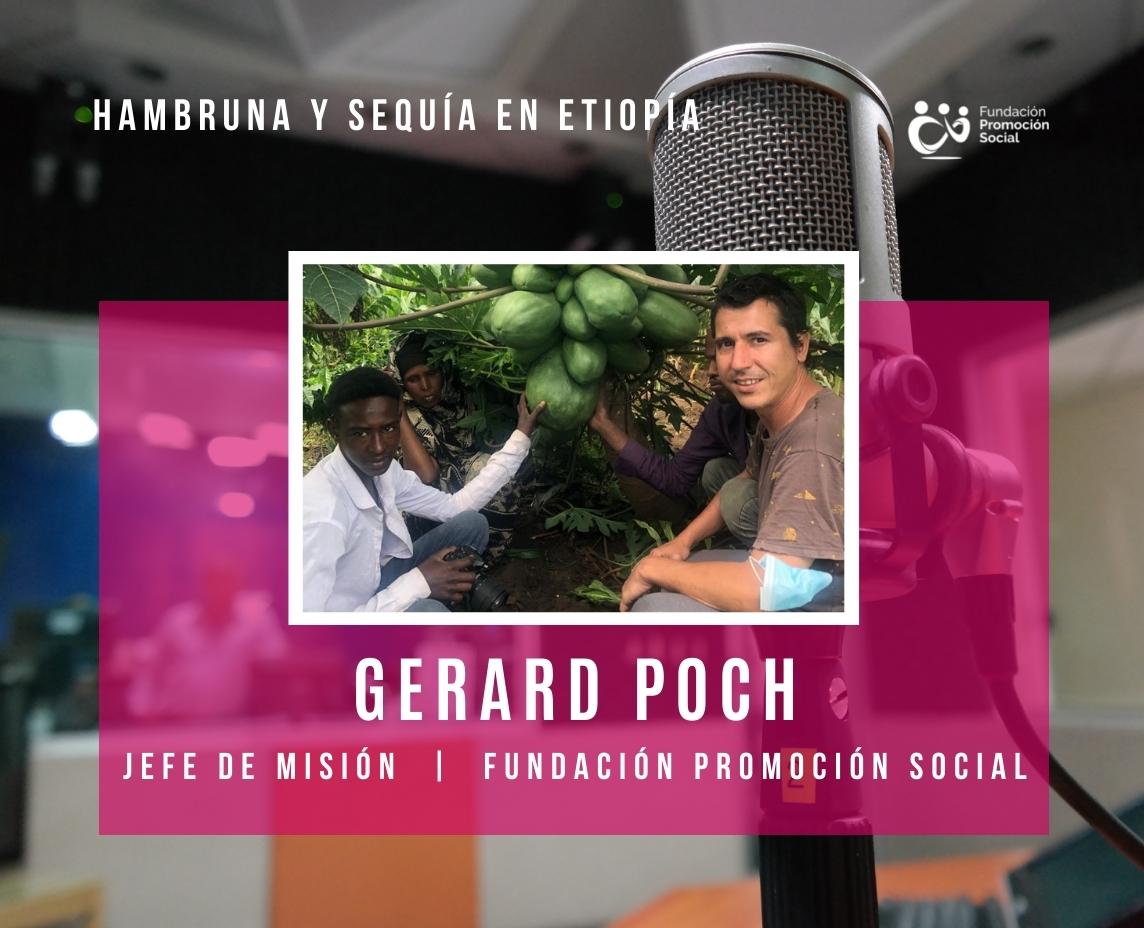On April 27, our Head of Mission in Ethiopia, Gerard Poch, participated in the radio program “Pròxima parada” (minute 39:10), on the “À punt” Valencian regional channel, to talk about the consequences that the drought has on the famine in the country, especially affected by the lack of rain in recent years, and the initiatives launched by the Social Promotion Foundation to try to alleviate it.
And it is that with a human development index of 0.485 (United Nations Development Program, 2020), about 85% of the population of Ethiopia resides in rural areas (Consumption survey 2015/16 of the Central Statistics Agency ).
This population relies on small-scale in rain-fed and rain-fed agriculture with little diversification and low production and productivity as a means of subsistence, which makes Ethiopian households highly dependent on climatic conditions and explains that the 30.4% of the rural population in Ethiopia live below the poverty line.
As a result, much of the population is food insecure. Agriculture and livestock represent 44% of the Gross Domestic Product, 70% of exports and 80% of total employment.
Access to water is conditioned by the variation in rainfall, which has devastating effects on the productivity of crops and livestock and, therefore, on access to food.
Soil degradation and lack of irrigation contribute to low crop yields, as well as increased exposure to the impacts of climate change.
This situation is aggravated by frequent natural and/or man-made disasters, such as droughts, floods, epidemic outbreaks, inter-ethnic tensions and the flow of refugees from bordering countries.
Periodic cycles of drought cause chronic humanitarian crises that gradually erode the resilience of already vulnerable communities, especially among smallholder farmers and nomadic herder communities.
For all these reasons, the actions of the Social Promotion Foundation seek to eliminate the pressures that affect nature so that it can recover on its own, to improve the means of subsistence of the people who depend on it and to control diseases and reduce the risk of natural disasters.
And to achieve this, initiatives such as:
- Provision of infrastructures for the collection, distribution (irrigation) and storage of rainwater and groundwater for agricultural use;
- Training in the use of efficient and sustainable agricultural production techniques (intercropping, agroforestry, vermiculture), and the provision of quality inputs (improved seeds, biofertilizers) and adapted agricultural machinery) are startup;
- Introduction of animal species, improvement of animal health, conservation of pastures and fodder banks, to increase livestock and dairy production.
- Reduction of erosion, with physical, biological and mechanical measures;
- Recovery of degraded areas, thanks to reforestation campaigns with native species and other techniques;
Increase in biodiversity, reintroducing adapted species, with the creation of a nursery and a seed bank. - Strengthening the quality of the community fabric, improving its management capacities and greater sensitivity to environmental issues, through the strengthening and/or creation of community management committees; improving management capacities for cooperatives and committees, and facilitating resources;
- Exchanging experiences between woredas to share lessons learned; and awareness in sustainable management of the environment.
- Training in income diversification, entrepreneurship, business management and personalized advice to improve the marketing of products and services.
- Democratic Governance, guaranteeing access to basic social services, rights and gender equality.
- Training and women’s access to productive resources, and their incorporation into local committees and cooperatives, to achieve greater participation in decision-making.
In this work, the Foundation has had the support of institutions such as the Spanish Agency for Development Cooperation (AECID), the Regional Government of Valencia, Alcobendas City Council and AUARA, working hand in hand with its local partners Ethiopian Catholic Church Social and Development Commission (ECC-SDCO), Horn of Africa Voluntary Youth Committee (HAVOYOCO) and The Missionary Community of Saint Paul the Apostle, and in recent years in consortium with the NGO Rescate.





